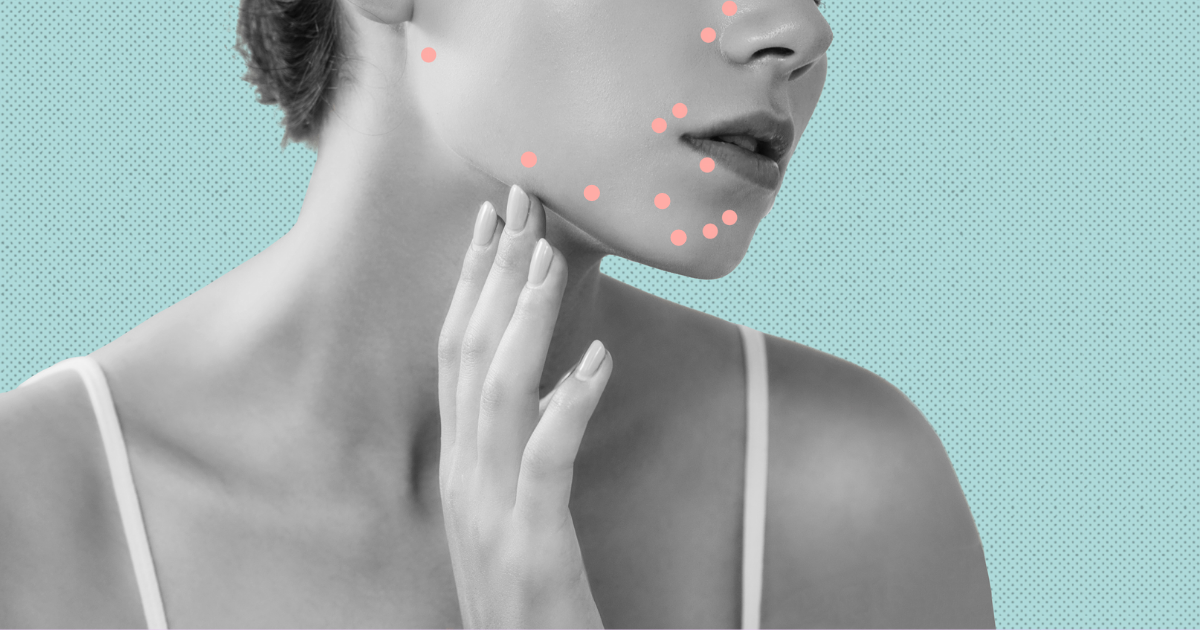Do you find yourself breaking out 1-2 weeks before your period every month?
It is likely to be hormonal acne, a flare-up of blemishes every month due to a fluctuation in hormonal levels in the body. These may present as large, painful, cystic acne around the chin and jawline.
Less commonly, hormonal acne may be due to an underlying medication condition such as Polycystic Ovarian Syndrome (PCOS).
Why does hormonal acne flare up before my period?
About 2 weeks before your period, the hormones estrogen and progesterone drop dramatically, while you will also experience a slight increase in testosterone.
The drop in estrogen and progesterone can trigger your sebaceous glands to secrete more sebum – an oily substance that lubricates your skin. This oil provides the perfect breeding ground for bacteria, and thus causes clogged pores, pimples and cystic acne (those somewhat painful bumps just under the skin) – usually around the chin and jawline.
While testosterone is thought of as the ‘male’ sex hormone, it exists in slightly differing amounts in everyone. The increase in testosterone can trigger acne by over-stimulating oil glands, which ultimately creates a fertile breeding ground for bacteria on the skin – resulting in clogged pores and period acne. They can also change the skin cells that line hair follicles, making them sticky and more likely to clog pores.
So what can you do about hormonal acne?
For acne that is related to your period, intervention treatment needs to be hormonal as well to work.
Birth control pills or patch
Hormonal birth control – including birth control pills and patches raise estrogen levels and reduce the effects of testosterone on women. Lower levels of testosterone reduce sebum levels, directly reducing breakouts and possible acne due to less oil and bacteria growth.
According to WebMD, hormonal birth control increase a protein known as “sex-hormone binding globulin” (SHBG) in the blood. In turn, SHBG acts like a testosterone sponge soaking up testosterone in your blood. In simple words, lesser testosterone equals lesser sebum which results in less acne.
Be patient when you first start hormonal birth control to control acne. Some women may experience increased breakouts for the first few months. However, this normally goes away as your body adjusts to the change in hormones.
Some birth control pills and patches are specifically useful for controlling acne, including Yaz and Evra Patch. Speak with your doctor before deciding if this is right for you!
Exercise and eat well (Non-hormonal)
Drink more water as the drop in estrogen and increase in testosterone can leave your skin dehydrated and thus susceptible to sebum build-up and clogged pores. Studies have shown dairy products and high glycemic (GI) foods can trigger acne as well, so stay off milk related products and processed foods to keep your skin healthy.
